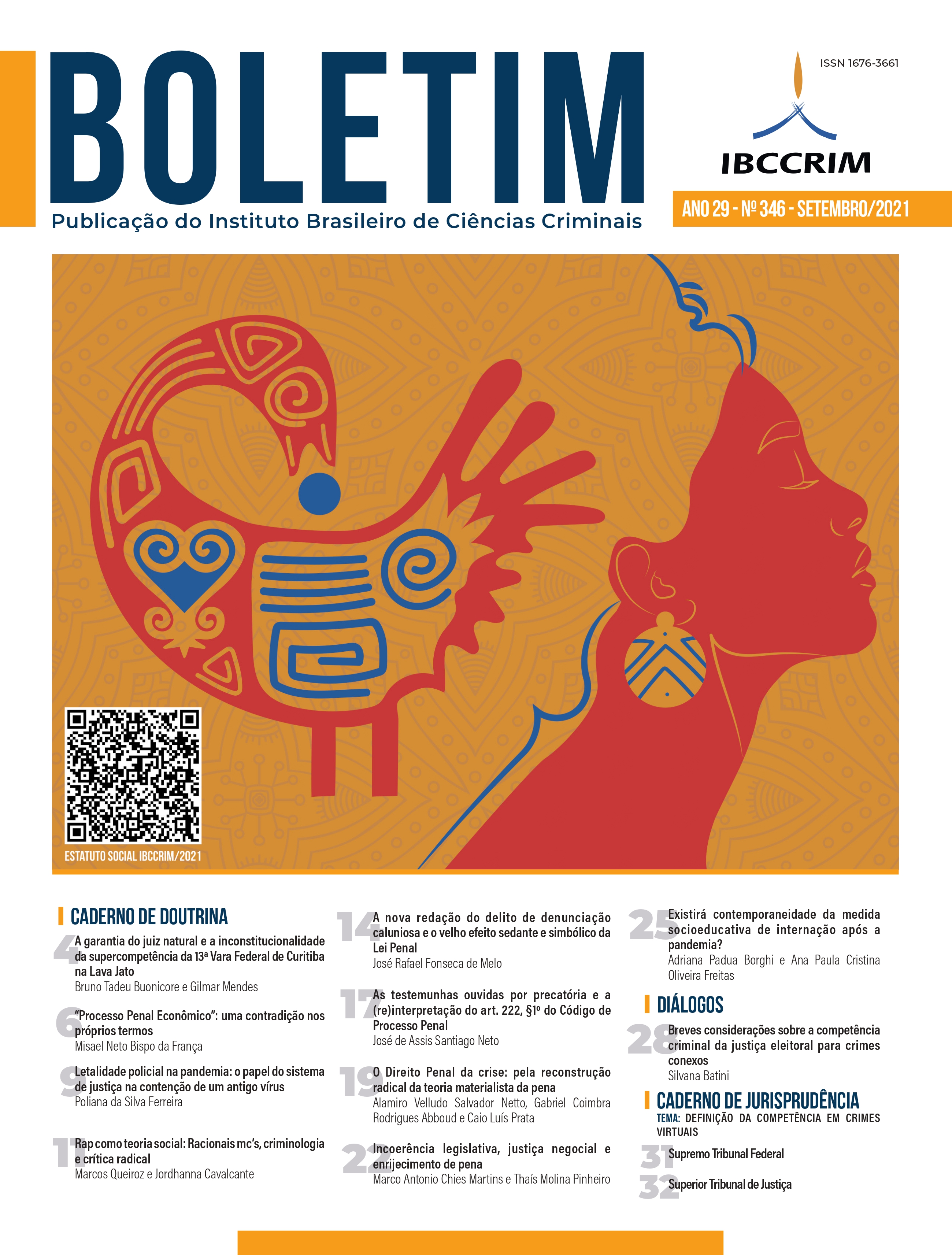Brief considerations on the criminal jurisdiction of the electoral justice for related crimes
Views: 111Keywords:
Electoral justice, Jurisdiction, Electoral crime, Related crimesAbstract
The article deals with impasses arising from the application of the judgment of the Supreme Court, which recognized the venue of the electoral justice for common crimes, when there is a connection with electoral crimes. There is a need to understand the limits of the understanding of the Supreme Court, both in the dogmatic configuration of electoral crime and the possibility of its absorption, as well as in the configuration of the connection authorizing the meeting of processes. It is important to recognize that the decision must consider the accusatory system, which gives the Electoral Prosecutor the final word on the existence of the electoral crime. Finally, the article points to the constitutional impasse of the extended jurisdiction of electoral justice, for common crimes, considering the composition of electoral courts, which have lawyers not subject to constitutional limitations imposed on judges.
Downloads
References
Brasil. Supremo Tribunal Federal (Pleno). Quarto Ag.Reg. no inquérito 4.435. Relator: Min. Marco Aurélio, Tribunal Pleno, 21 ago. 2019. Disponível em: http://www.stf.jus.br/portal/diariojusticaeletronico/pesquisardiarioeletronico.asp#. Acesso em: 12 ago. 2021.
FISCHER, Douglas e PACELLI, Eugenio. Comentários ao Código de Processo Penal e sua Jurisprudência. 12. ed. São Paulo: Atlas, 2020.
GÓES, Silvana B. C. Corrupção e eleições: o que o Direito Eleitoral tem a dizer. In: SALGADO, Daniel de R.; QUEIROZ, Ronaldo Pinheiro de; ARAS, Vladimir (Org.). Corrupção: aspectos sociológicos, criminológicos e jurídicos. 1.ed. Salvador: JusPodivm, 2019. p. 235-266.
Downloads
Published
How to Cite
Issue
Section
License
Copyright of published articles belongs to the author, but with journal rights over the first publication and respecting the one-year exclusivity period. Authors may only use the same results in other publications by clearly indicating this journal as the medium of the original publication. If there is no such indication, it will be considered a situation of self-plagiarism.
Therefore, the reproduction, total or partial, of the articles published here is subject to the express mention of the origin of its publication in this journal, citing the volume and number of this publication. For legal purposes, the source of the original publication must be consigned, in addition to the DOI link for cross-reference (if any).

 Português (Brasil)
Português (Brasil)
 English
English
 Español (España)
Español (España)







